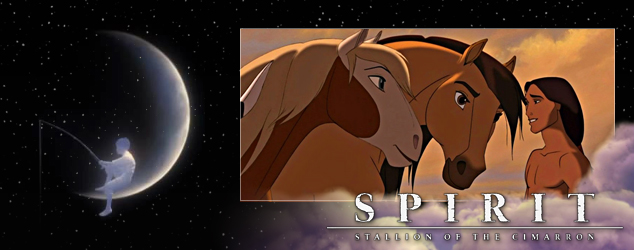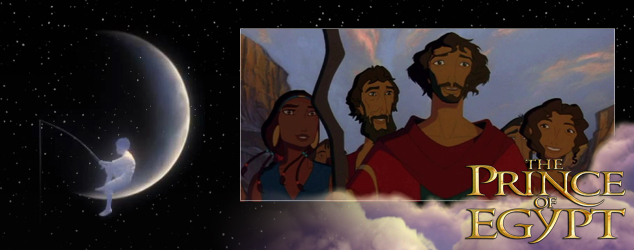by Kajsa Forden | Sep 15, 2017 | From the Author
This article was originally published on Rotoscopers.com

*Disclaimer: Spoilers ahead.*
The tale of a mustang in the days of the Old West, when great herds of buffalo still roamed the plains and the railroad was growing, Spirit: Stallion of the Cimarron faces westward expansion from the perspective of a wild horse. A steady story, with strong animation and enveloping music, this film takes on animal characters and plot without excessive anthropomorphism, dumbing down, or unnecessary comic relief.
Released on the 24th of May, 2002, Spirit was written by John Fusco (Hidalgo), directed by Kelly Asbury (the Shrek franchise) and Lorna Cook, and starred Matt Damon as Spirit’s narrative voice, James Cromwell as the Colonel, and Daniel Studi as Little Creek.
The Story
John Fusco was hired to write a screenplay based on an idea from Jeffrey Katzenberg; Fusco took the project very seriously. First, he wrote a novel for Spirit‘s story, and then adapted his own work into a screenplay for the film. In a way, that explains the film’s flow, built atop fully detailed prose rather than starting from storyboards and screenplay.
Although written with the added appeal of minimal dialogue, Spirit’s own narrative voiceover remains a constant through the film, initially welcome but sometimes unnecessary. The story is simple enough and visual enough to keep the viewer informed and intrigued. The viewer watches Spirit travel from his own gorgeous homeland to a military outpost to a Lakota village to the expanding railroad construction. It’s a grand Western adventure in every sense, except that there’s nary a cowboy in sight…
Read more on Rotoscopers.com
by Kajsa Forden | Sep 1, 2017 | From the Author
This article was originally published on Rotoscopers.com

Jeffrey Katzenberg, co-founder of DreamWorks Animation, often suggested an animated adaptation of 1956’s The Ten Commandments while still working at Disney; although Disney CEO Michael Eisner dismissed the idea, fellow DreamWorks co-founder Steven Spielberg suggested it as DreamWorks Animation’s inaugural film. Even though it was usurped by Antz, which was rushed into theaters to compete with Pixar’s A Bug’s Life, The Prince of Egypt still made it to theaters in time for the 1998 holiday season.
Directed by Brenda Chapman (Brave), Steve Hickner (Bee Movie), and Simon Wells (Balto, Mars Needs Moms), the animated take on the story of Moses and the Hebrews of Egypt featured a star-studded cast, an extremely dedicated production team, and the musical genius of Hans Zimmer and Stephen Schwartz (The Hunchback of Notre Dame, Wicked) together.
“The motion picture you are about to see is an adaptation of the Exodus story.
While artistic and historical license has been taken, we believe that this film is true to the essence, values and integrity of a story that is a cornerstone of faith for millions of people worldwide.
The biblical story of Moses can be found in the book of Exodus.”
The black screen and opening text, accompanied by Hans Zimmer’s beautiful opening score, is a soft prelude to a harsh opening scene, featuring hundreds of slaves working under brutal conditions.
Schwartz’s compelling “Deliver Us” rises with the brutality as we witness the Egyptian soldiers forcibly removing Hebrew babies from their homes.
But still a moment of softness: Yocheved sings her last lullaby to the baby Moses as she sets him afloat along the river to save his life.
For an animated film to take on such real and harsh human experiences is unusual within itself; but The Prince of Egypt does so almost unflinchingly, without extra sugarcoating or condescension toward the presumably, and largely, youthful audience…
Read more on Rotoscopers.com


